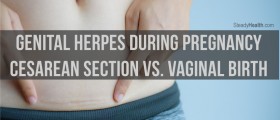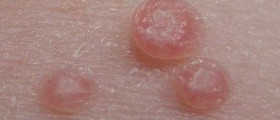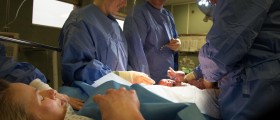
HPV, or the Human Papilloma Virus, is quite common, and only some of the people who have been infected develop warts. They are more common in women, and can occur anywhere on the genitals from the labia to the rectum, the vagina and even on the cervix. Incidentally, times during which your immune system is weaker than usual, such as... a pregnancy, are much more likely to bring forth outbreaks of genital warts. They are not tested for in a lab, like most other STDs, and need to be diagnosed through a physical exam.
Once you know that you have genital warts, focusing on their treatment is the most important. You have several options, which you will discuss with your OB/GYN. Creams, which do work, are very slow to get rid of warts and are not recommend for pregnant women because of that. Some medications are not safe to use in pregnancy, so always check the package insert, even if your doctor prescribed medication knowing that you are pregnant. Laser surgery, where genital warts are burned away, is more effective and fast. But warts can always come back before you give birth. What if your due date is drawing near, and you and your doctor have not managed to eliminate the warts? Can you still give birth vaginally, or do you need a c-section?
Well, traditionally many OBs like to recommend a c-section for genital warts, but research shows that the risk of passing HPV and possibly genital warts onto your newborn is the same for both cesarean and vaginal births. As such, delivering vaginally is as safer. Cesarean carry risks, and they should not be carried out without a good reason. There are exceptions, where genital warts have grown so large that they are obstructing the birth canal. In that case, a c-section is the only way out (please give me points for the cheesy pun!). If you are having a cesarean, you might want to prepare for the post-partum period in advance.















Your thoughts on this
Loading...